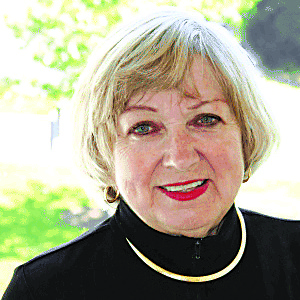Economic Development can be delicious and great fun as many learned at the Clark College “Growing Our Future Food Summit” last month. Soil and logistic experts, hobby farmers, entrepreneurs and foodies learned and shared their experiences and enthusiasm at the event. The next question is: Can agriculture become a local sustainable industry?
Agribusiness is in Clark County’s DNA. Food production was the vehicle that established our economic base. John McLoughlin resettled the Hudson Bay Company from Fort George (Astoria) to what is now the Vancouver area, to grow food to sustain his trading post business. He found the land most suitable for agriculture and, in 1825, stripped sod off 300 acres of land to plant peas, potatoes, grains and to raise chickens and pigs. Mill Plain and Fourth Plain are named for grist mills and grain fields. The Fort, as a trading post, needed a steady food supply. There were no local suppliers other than the native tribes who traded fish and camas bulbs.
The agriculture business at the Hudson’s Bay Company resupplied trappers who had travelled hundreds of miles to trade their furs. Trading posts from California to Idaho and north towards Alaska were supplied with our local food as well. In time, the abundance of food grown here also supplied ships along the west coast – many on their way to Asia.
With favorable growing conditions, local agriculture played a role in the movement of settlers from the East. Lines of wagon trains meandered to this area with people who were promised pieces of this fertile land. However, economists remind us that this initial farming venture operated as a monopoly; there were no competitors and there was a huge demand.
Almost 200 years later, we are back to the future to grow things. Small farms are distributing their products to grocery stores, restaurants, farmer’s markets and directly to the customer. For many, this is a labor of love. I know from my students that many do not count their labor as a cost of production. Consumers benefit by eating fresh, pesticide-free produce. Certified organic farms have created a marketing niche for some, but pricing gets complicated for local farmers. Unlike the agriculture produced by the Hudson’s Bay farms, the local farms of today do not have the advantage of a monopoly. Instead, they are operating in an industry of pure competition.
Can producers make a living and survive in this industry? Although there are no guarantees in business, true economic development calls for leadership and a new way of doing things. One such path forward is to develop an agriculture industry that combines micro food production with tourism. In Italy, they call this “Agriturismo” and it is a big hit. We have some versions of it in the U.S., like bus tours to wineries such as Maryhill or the Fruit Loop in Hood River, which offers self-guided farm tours. We also have farm stays that offer bed and breakfast in a rural setting.
The Italian government supports Agriturismo as an industry. Like many things Italian, visits to the countryside are great fun. While working in Sicily years ago, I went on many weekend Agriturismo outings. I have fond memories of my tour bus meandering through a rocky hillside to goat farms or orange groves. One memorable meal on an Italian farm included freshly baked bread, goat cheese and local blood oranges. A cheese making demonstration got everyone involved in stirring and packaging.
We have it all to make it happen here: the natural resources, creative and industrious people, and institutions to support agritourism as a developing industry. The Culinary Institute at Clark College and the Hospitality Program at WSU Vancouver can help establish the skill base for this industry. Most importantly, the State of Washington is again supporting tourism as an industry.
All levels of government need to support such a fledgling industry including local jurisdictions who license food services and food carts that are popular with tourists. By differentiating ourselves, we create an advantage. We can move out of the pure competition category into an economy that promises a decent living for its producers.
Lucia Worthington harvests fresh food from her edible landscape on her city lot in Washougal starting with raspberries in May and ending with kiwis in November. She teaches business and management at Clark College.






